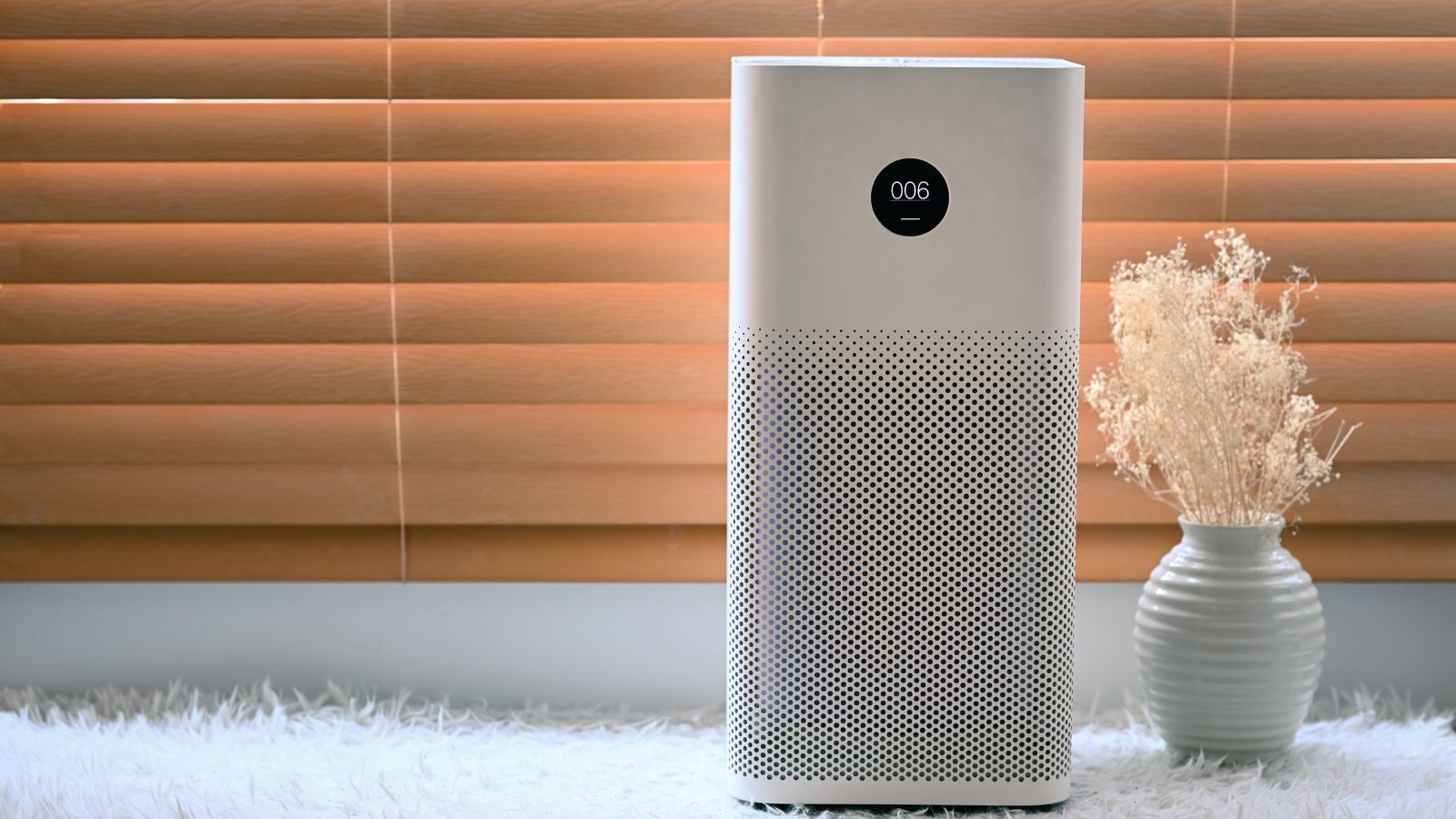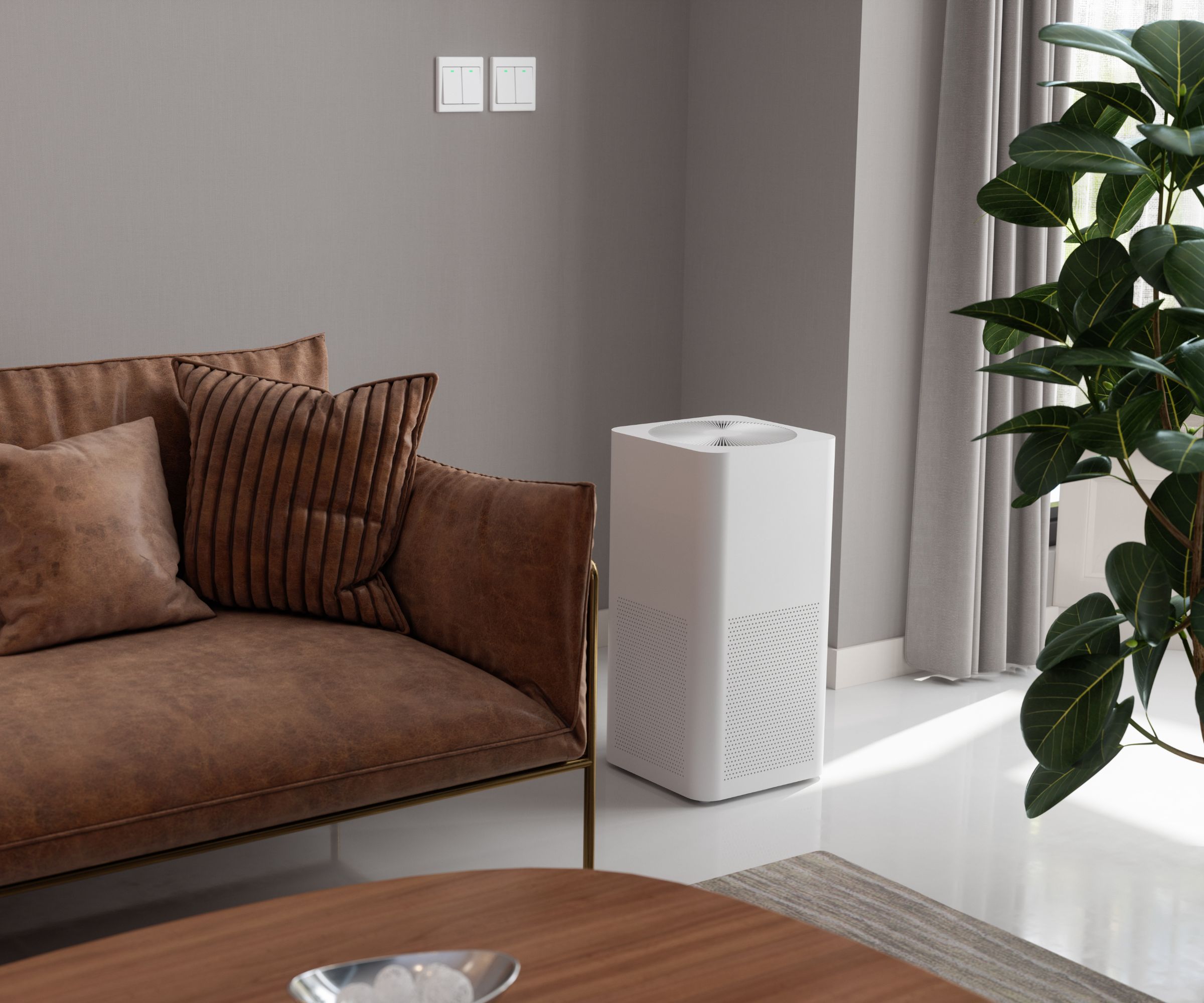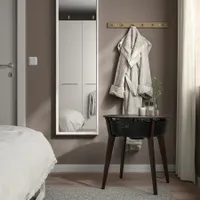What to look for in an air purifier – HVAC experts offer their best tips for this important investment
Air purifiers are becoming increasingly important as our climate changes, here is what to look for before making an investment


- 1. Consider the size of your space
- 2. Decide what it is you want to filter out
- 3. Research the purifier’s CADR rating
- 4. Acknowledge the cost of replacement filters – and their availability
- 5. Think about the decibel level of the purifier at each speed
- 6. Think about where it will go
- 7. Consider the model's energy efficiency
- 8. Don’t forget the design of the air purifier
- FAQs
Air purifiers are growing increasingly popular and there are thousands of different types to pick from when trying to clean the air in your home. But what should we really be looking for in an air purifier? And does it make a difference?
While it would be easy to just look up the best air purifier and call it a day, the best device for you will depend on the size of your space and the air quality where you live.
HVAC technicians have shared their thoughts on what you should be looking for in an air purifier so you can make the right choice the first time.
What to look for in an air purifier
Air purifiers have never been more important, and research suggests that the concentration of toxins, allergens, and other pollutants can be up to five times higher indoors than outside.
‘Extremely small particulate matter (PM2.5) is one of the most dangerous air pollutants and 75% of our exposure to it happens within our own homes,’ explains Dr. Jie Zhao, an expert on indoor environments and head of Delos labs. ‘All of this has led to more homeowners making significant changes to improve indoor environmental quality. In fact, 81% of homeowners have indicated that improving indoor air quality (IAQ) was a primary focus for them.’

1. Consider the size of your space
One of the most important factors to get right when picking an air purifier is about choosing a device that works with the size of your space, says Dr. Jie Zhao, an indoor environments expert.
‘The size and the number of air purifiers a home may need is dependent on the size of the space itself. It is important to get a purifier that is able to cover the area in which you plan to place it. You can determine whether the purifier is large enough for your space by looking at the manufacturer’s recommendations and the ACH (air changes per hour) of the device. The higher the ACH value, the more quickly the purifier replaces the air in your space with cleaned air.’
Design expertise in your inbox – from inspiring decorating ideas and beautiful celebrity homes to practical gardening advice and shopping round-ups.
2. Decide what it is you want to filter out
The term ‘air purifier’ can sometimes be misleading. While all devices clean the air in some way, some do it better than others – and some remove gas contaminants while others only work on particles. Knowing what you need to filter out will dictate which air purifier is best for you.
‘I always recommend looking for units with a HEPA filter, or performance that achieves HEPA-level filtration efficiency,’ advises Dr. Jie Zhao, indoor environments expert. ‘This type of air filter is rated to help get rid of dust, pollen, mold, bacteria, and any airborne particles with a size of 0.3 microns (µm). These air purifiers are efficient in filtering out even the smallest particles – such as fine particulate matter, and can be very helpful in cleaning the air during wildfire season.’

Dr. Jie Zhao leads a research and development team at Delos Labs. His responsibilities include leading a group of scientists, engineers, architects, and designers to research and develop innovative products and services to improve human wellness in indoor spaces.
3. Research the purifier’s CADR rating
CADR stands for clean air delivery rate, a system designed to help users understand how effective an air purifier is at removing particles from a specific sized area. Typically, the higher the CADR, the more powerful the purifier is, says Peter Mann, chair of the Association of Home Appliance Manufacturers Air Cleaner Council, and founder of Oransi.
‘There’s only one number you need to judge air purifier performance – that number is CADR, and it proves the performance, or lack thereof, of a device.
‘It’s a standard measurement that’s tested by third-party independent labs. There’s a CADR number specific to smoke particles and how well an air purifier cleans rooms of smoke. A good rule of thumb is to look for a HEPA air purifier with a Smoke CADR that’s about ⅔ the size of the room you want to clean. That one number is all you need to shop with confidence.
‘If you don’t see Smoke CADR listed in the technical specs, it’s a good bet that number wasn’t impressive enough to share.'

Peter Mann is the CEO & Founder of Virginia-based Oransi, a leading air purification company known for its efficient, intuitive and reliable products for consumers, schools, organizations and businesses. He also is the Chair of the Association of Home Appliance Manufacturers Air Cleaner Council.
4. Acknowledge the cost of replacement filters – and their availability
Air purifiers need more than just regular cleaning – just like water filters, they need replacement filter cartridges to keep them efficient. This will cost you money over time, so it is important to take this additional cost in mind when picking a starter unit as some replacement filters are more affordable than others and more readily available if you need to stock up in a pinch.
Keith Lambert, HVAC expert and president at Oxidizers Inc. suggests buying spares when you buy your unit.
‘All too often people put filtering systems in place but don’t pay attention to things like changing filters, maintenance, cleaning your air filter, etc so they become clogged and unproductive, resulting in the machine not serving its purpose,’ he says. ‘Having spares on hand makes switching them out easier and quicker.’
5. Think about the decibel level of the purifier at each speed
Just as with the best dehumidifiers, it is impossible to have a cleansing device that does not make any noise, so it is important to think about what level of noise you find acceptable in the background – especially if you are picking an air purifier to help you sleep better. Lower decibel models may not be as efficient as louder options, so it is important to weigh up the pros and cons of each device.
6. Think about where it will go
When picking an air purifier, it is important to think about where it will go in your home to help determine the type of purifier you pick and its size, says Roy Neely, Frontdoor HVAC Expert.
‘Centralized air purifiers are integrated with HVAC systems and purify the entire house, while portable units can be moved between rooms as needed. Choose the one that best aligns with your needs and budget.
‘When using a portable air purifier, place it in areas with high traffic or where pollutants are concentrated. Keep it away from walls and furniture to ensure maximum air circulation and make sure to close any windows and doors nearby for it to work efficiently.’
7. Consider the model's energy efficiency
When selecting an air purifier, you should remember that the added electrical device will have an impact on your energy bill – especially when using it all the time, so you should pick a model that can help you save money on your energy bills.
‘Prioritizing energy efficiency when selecting an air purifier ensures that you can enjoy cleaner indoor air without incurring high energy costs,’ says Roy Neely, HVAC Expert. 'Look for models with Energy Star certification, sleep mode, or smart technology integration for maximum efficiency. Making an eco-conscious choice not only benefits your household but also helps protect the environment for future generations.'
8. Don’t forget the design of the air purifier
Of course, an air purifier is mainly about function over style, but if you are conscious about disrupting the look of your home, then there are plenty of air purifiers available that blend in, rather than stand out as a white box in the corner of your room, says Millie Hurst, Solved section editor for Homes & Gardens.
‘A good example is the STARKVIND air purifying table from IKEA, it is a subtle decor addition that doubles up as a purifier – and it comes with particle and gas filters too. I recently added one to my living room as a side table and love how quiet it is, and the fact it has a hidden wire slot to keep cables out of the way.’
STARKVIND Air Purifier Table | $199 at Ikea
This air purifying table is a must-have if you are conscious about your health and the design of your home. What’s more, it can be connected to a smart home system such as Google, Apple, or Alexa to customize your space.

Millie Hurst is Section Editor at Homes & Gardens, overseeing the Solved section, which provides readers with practical advice for their homes. Millie has written about and tried out countless cleaning and DIY hacks in the six years since she became a journalist, and has worked in both London and New York.
FAQs
How do you know if you need an air purifier?
Air purifiers can benefit everyone, but you may need one if you notice a lot of dust floating in the air of your home, have bad allergies to dust or pollen, or your house smells musty a lot (in which case you may also need a dehumidifier to help with damp or mold spores), or if you have pets. You may also need an air purifier if you live in an area with high pollution, such as in a city, or an area that is exposed to wildfire smoke.
Should I put an air purifier in every room?
While in an ideal world, every room would have an air purifier to help keep the air in your home clean, it is often not needed (and is very expensive too). You should place air purifiers in rooms you use most of the time, such as the living room and bedroom instead, to help feel the benefit of these investment devices.
With many people experiencing poor air quality around the world in recent times, it's less of a question of whether air purifiers are worth it and more about finding one that works for your household. Now more than ever are people looking for an at-home solution to prevent sickness – which is why it is so important to do your research and pick the best device for your home.

Chiana is Homes & Gardens’ kitchen appliances editor. With a lifelong passion for cooking and baking, she grew up experimenting in the kitchen every weekend with her baking-extraordinaire Mom, and has developed a great understanding of how tools and appliances can make or break your ideal relaxing kitchen routine.
